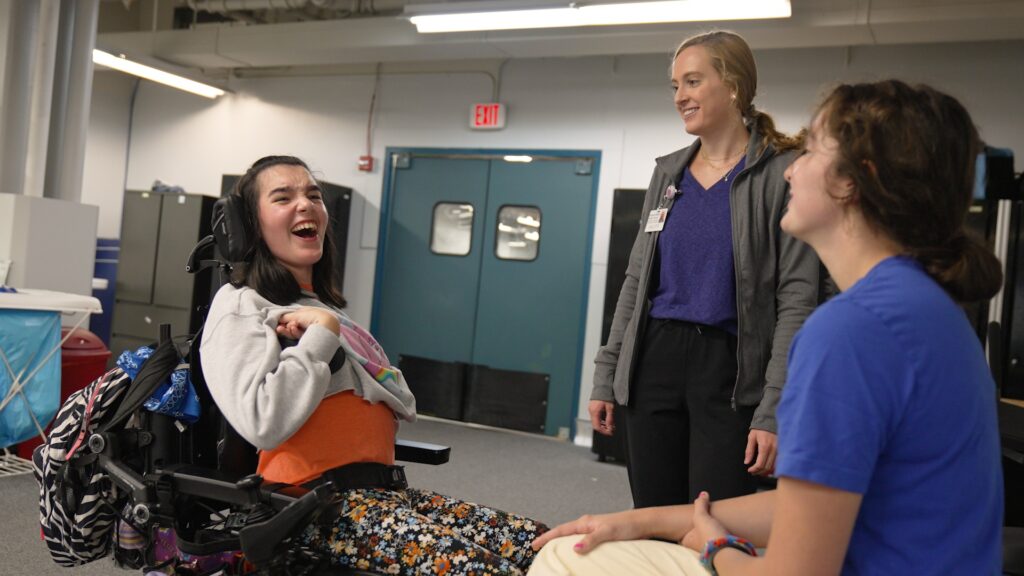
Neurodevelopmental disabilities are often identified in toddlers and children who show developmental delays. These can be related to physical, mental or behavioral delays. Children with several symptoms may fit into certain profiles — for instance, autism spectrum disorder (ASD) or learning disorders.
These disorders were initially identified by distinct symptom profiles. However, researchers now view them as a spectrum rather than separate conditions, involving a combination of numerous genetic differences. The prenatal environment, social relationships and other factors also play significant roles.
Neurodevelopmental disabilities can exhibit general patterns, yet they remain unique to each individual. A child’s test results provide insight into whether they have a specific condition. Testing primarily aims to understand their approach to the environment and specific tasks.
This article outlines neurodevelopmental disabilities, offering illustrative examples. Additionally, it delves into the processes employed at Ability KC for assessing cognitive changes.
What are neurodevelopmental disabilities?
Neurodevelopmental disabilities are conditions that can cause impairment beginning in early childhood. They don’t always persist into adult life. The Diagnostic and Statistical Manual of Mental Disorders (DSM-5-TR) lists three specific conditions: intellectual disability (ID), autism spectrum disorder (ASD) and attention-deficit/hyperactivity disorder (ADHD). Children with one of these conditions often have symptoms in another area. This is why it may be more helpful to view them as a spectrum. It’s also why the assessment process must be very thorough.
Children with neurodevelopmental disabilities may have these symptoms or impairments:
- Anxiety
- Emotional challenges
- Intellectual disability
- Behavioral concerns
- Verbal impairments
- Motor problems
- Sensory issues
- Sleep disorders
- Attention deficit
- Obsessive-compulsive disorder (OCD)
- Seizures
What are some examples of neurodevelopmental disabilities?
On the surface, neurodevelopmental disabilities might look like emotional or behavioral problems. However, they have more complex causes within a child’s brain and genetic makeup. Children may have delays in physical, emotional, intellectual, sensory, verbal or motor development.
These disabilities share important qualities with schizophrenia and bipolar disorder, which are also affected by both genetics and early life conditions. However, schizophrenia and bipolar disorder are more likely to show up in adulthood.
When a child shows delays in a particular area, or more than one, it’s important to get an assessment. A multidisciplinary team will look for evidence of other delays and disorders. Your child may need more assessments as they grow and mature.
The following are some examples of neurodevelopmental disabilities:
- Attention-deficit/hyperactivity disorder (ADHD)
- Autism spectrum disorder (ASD)
- Communication disorders
- Intellectual disability (ID)
- Learning disabilities
- Neurodevelopmental motor disorders, including tic disorders
How do neuropsychologists gauge cognitive changes?
The results of neurodevelopmental testing should create a picture of a child’s mental, emotional and physical state, outlining their strengths and weaknesses and shedding some light on their thought processes. Your child’s neuropsychology diagnostic team will look at how their size and weight compare to others in their age group. They’ll also look for dysmorphism or unusual features.
Assessments should measure specific skills like attention span, processing speed and organization. The team will pay attention to your child’s speech patterns. They’ll also observe ways they explore spaces and situations. Frustration tolerance and anxiety are two important symptoms they’ll look for.
Diagnostic teams may include the following:
- Neurodevelopmental pediatrician
- Neurologist
- Eye doctor
- Hearing specialist
- Physical therapist
- Nurse practitioner
There are a number of assessment frameworks and tools your child’s team may use. Some are simple tests and sets of questions, like the SCQ (Social Communication Questionnaire). Others are more far-reaching, like the Pediatric Evaluation of Emotions, Relationships and Socialisation (PEERS). Most teams will combine tools to get the most accurate picture of each child’s neuropsych profile.
Your child’s exam will likely include the following elements:
- Brain imaging — Magnetic resonance imaging (MRI) shows the brain’s structure. Electroencephalography (EEG) measures the activity of specific neurons.
- Laboratory tests — Blood tests and other lab tests will check how specific organs and systems are working.
- Developmental tests — These measure how your child is functioning compared to their peers. Evaluators will look for specific milestones.
- Neurologic examination — This is where practitioners will home in on how your child’s brain is working. Motor and sensory skills are part of it. They’ll also look at eye contact, balance and coordination, behavior, reflexes, and more.
- Physical examination — This is where evaluators will look at your child’s physiological development and health. This helps rule out any underlying medical issues.
Explore neuropsych rehab and services at Ability KC
Our understanding of neurodevelopmental disabilities is continually evolving, leading to numerous therapies and treatments that support children facing these challenges. The primary goal of neuropsychological testing is to determine what your child needs to thrive. Based on the results, your child will receive a personalized treatment plan, which may include recommended therapies, treatments and lifestyle adjustments.
At Ability KC, our neuropsych team takes the time to get to know each child we work with. We customize each assessment for each person’s needs. We interview parents to get a full understanding of their child’s symptoms and how they’re affecting their lives. Then, we create a detailed report that doctors and educators can use to create treatment plans and accommodations.
Some programs, like our therapeutic preschool, are well equipped to help children with these conditions learn and socialize. We care about helping every child grow through these life stages to reach their full potential. At our school, children receive one-on-one therapy during the day. Children get a lot of attention with a 4-to-1 child-to-provider ratio.
How do you know you can trust Ability KC? We’re a designated Comprehensive Outpatient Rehab Facility (CORF). We also have accreditation from the Commission on Accreditation of Rehab Facilities (CARF).
Are you seeking out neurodevelopmental testing for your child? Contact our team today for more information or to schedule an initial appointment.